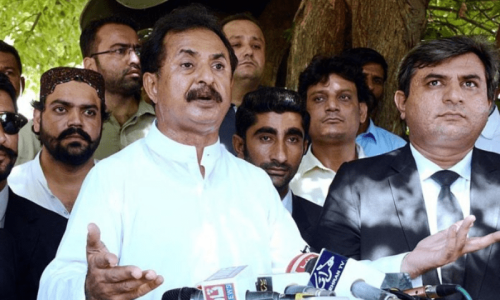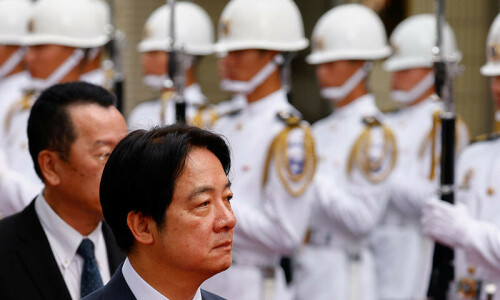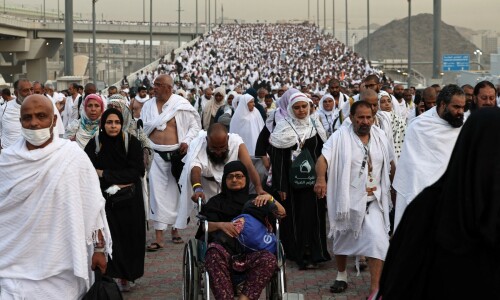The commuters in Karachi faced immense traffic jams on Thursday, a day after the goods transporters ended their 10-day long strike.
Long ques of vehicles were witnessed on almost all major arteries throughout the day as traffic police personnel seemed helpless to regulate the flow of the traffic.
Rangers and police personnel were also deployed at certain places to help the traffic police in regulating the traffic. The pressure on roads was majorly due to the heavy traffic as transporter's bodies ended their strike against a day-time ban imposed against them in accordance with the orders of the Sindh High Court.
The blockages were majorly witnessed on roads near Karachi Port, however, the flow of traffic also seemed badly affected in Saddar Town, Gulshan-i-Iqbal, Soharb Goth and other areas.

Apart from the impacts of heavy traffic, VVIP movement in the city also added fuel to fire. Chief Minister Sindh Syed Murad Ali Shah, PPP Chairman Bilawal Bhutto-Zardari and other influential figures separately visited the Arts Council of Pakistan, Karachi.
As per a routine protocol, the roads leading to the destination of the VVIPs were blocked, resulting in more pressure on adjoining roads for a good span of time.
Earlier, the transporters' strike lasted for 10 consecutive days. The transporters were complaining that almost 7,000 trucks were running 200 kilometres extra on daily basis due to the ban.
The SHC had in March directed the transport secretary and the city traffic police chief to immediately enforce a ban on the movement of heavy vehicles in the city during the daytime after citizens complained of a worsening in the traffic flow on the main arteries of the metropolis.
Realising the outcome of the strike's culmination, Inspector General of Police (IGP) Sindh A.D. Khawaja had a day earlier directed the range, zonal and district police offices to ensure cooperation with traffic police working to ensure smooth flow of traffic.
Khawaja also directed traffic police to take comprehensive measures to ensure smooth flow of traffic and reduce pressure on roads. However, owing to the massive gridlock all measures failed badly.
According to conservative estimates, currently, there are more than 3.6 million registered vehicles on Karachi roads.













































